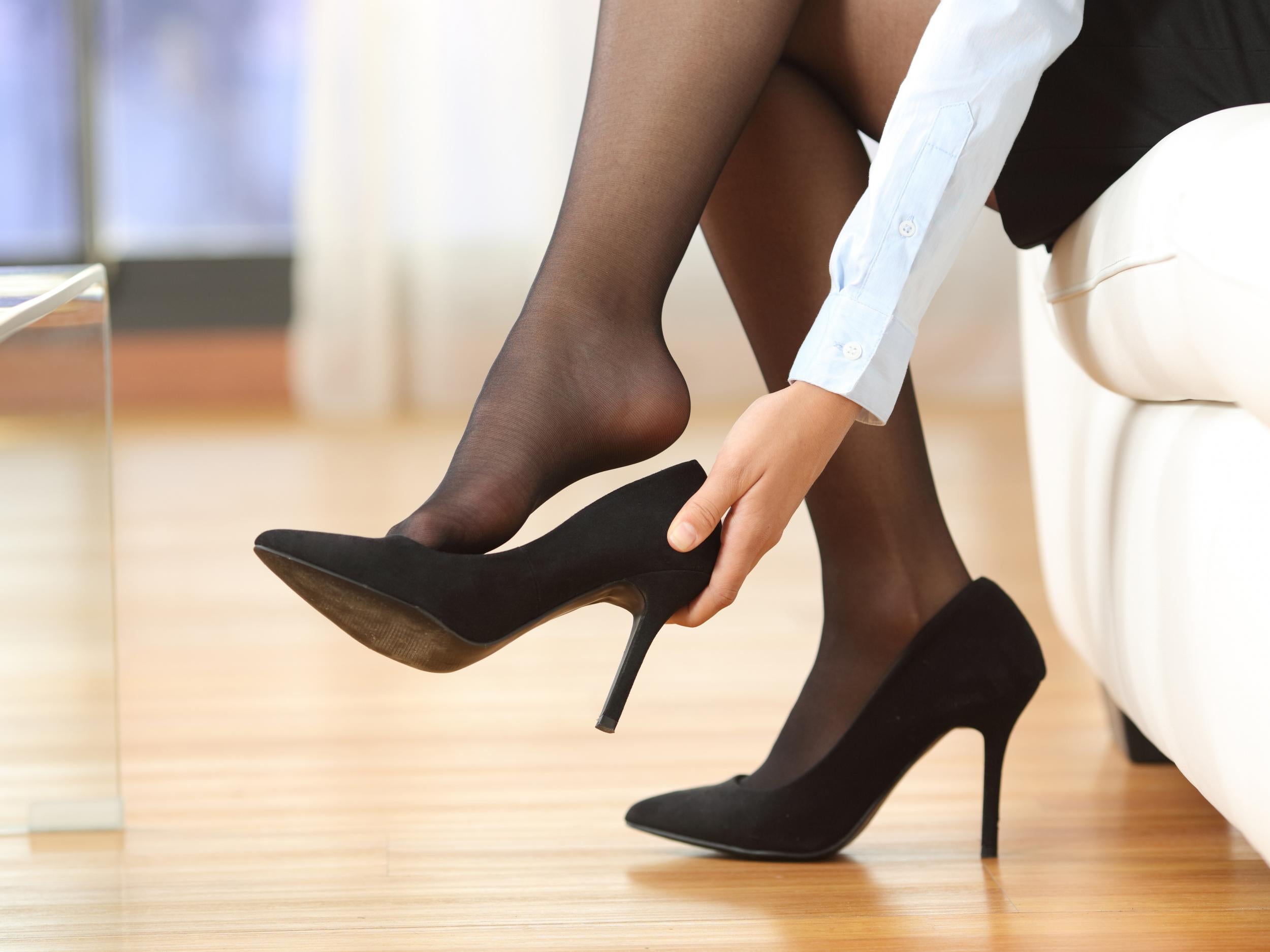Action needed to stop women being forced to wear high heels at work, researchers say
Study shows the shoes increase women's attractiveness to men but raise risk of developing musculoskeletal conditions

Researchers have called for action to stop women being forced to wear high heels at work.
Academics at the University of Aberdeen who carried out a review of scientific studies into the shoes said more needs to be done to address the problem.
The research identified evidence that the shoes increase women's attractiveness to men, but also a wealth of studies showing they raise the risk of developing musculoskeletal conditions and the chance of injury.
Earlier this year the UK Government rejected calls for a ban on enforced high heel wear.
Ministers said existing laws are adequate to deal with discrimination following the case of receptionist Nicola Thorp, who was sent home after she refused to wear heels at work.
The London temp arrived at PwC in flat shoes, but was told she had to have a 2-4in heel.
She launched a petition which attracted more than 152,400 signatures asking for it to be made illegal for companies to require women to wear the footwear for their jobs.
The researchers contrasted the response of the UK Government with that of the Canadian province of British Columbia, which has changed the law to ban employers from requiring female staff to wear high heels.
Dr Max Barnish, who led the research, said: "From our review it is clear that despite the huge amount of evidence showing heels are bad for individuals' health, there are complex social and cultural reasons that make high heel wearing attractive.
"We feel the UK Government should follow the lead of other authorities who have introduced specific laws to tackle this practice rather than simply relying on existing legislation which has left the situation in this country uncertain and open to misinterpretation.
"Also, this matter has in the UK been so far addressed through UK-wide equality laws. However, there may be scope for the devolved nations of the UK such as Scotland to consider introducing further measures under devolved health legislative powers."
Dr Heather Morgan, a lecturer at the university, said: "Of course we are not trying to tell anyone that they should or shouldn't wear high heels, but we hope this review will inform wearers to help them weigh up the health risks with social benefits, as well as putting pressure on lawmakers to toughen up legislation so that no-one is forced against their will to wear them in the workplace or in licensed public social venues.
"However, expectations are not always explicit and some may feel forced even if the law protects them."
Join our commenting forum
Join thought-provoking conversations, follow other Independent readers and see their replies
Comments
Bookmark popover
Removed from bookmarks